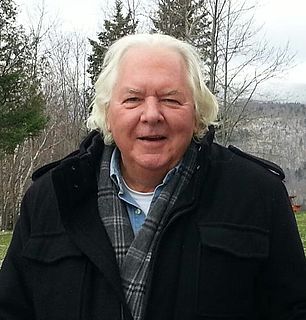A Quote by Ian Hacking
Experimental work provides the strongest evidence for scientific realism. This is not because we test hypotheses about entities. It is because entities that in principle cannot be 'observed' are manipulated to produce a new phenomena
[sic] and to investigate other aspects of nature.
Related Quotes
The hypotheses which we accept ought to explain phenomena which we have observed. But they ought to do more than this; our hypotheses ought to foretell phenomena which have not yet been observed; ... because if the rule prevails, it includes all cases; and will determine them all, if we can only calculate its real consequences. Hence it will predict the results of new combinations, as well as explain the appearances which have occurred in old ones. And that it does this with certainty and correctness, is one mode in which the hypothesis is to be verified as right and useful.
"Methodological naturalism" and "metaphysical naturalism" are terms that often surface in the continuing battle between evolutionary biology and creationism/intelligent design. The methodological thesis says that scientific theories shouldn't postulate supernatural entities; the metaphysical thesis says that no such entities exist. In this debate, God is the supernatural entity at issue; the question isn't whether science gets to talk about mathematical entities if Platonism is correct.
I have not been able to discover the cause of those properties of gravity from phenomena, and I frame no hypotheses; for whatever is not deduced from the phenomena is to be called a hypothesis, and hypotheses, whether metaphysical or physical, whether of occult qualities or mechanical, have no place in experimental philosophy.
I cannot prove that gods do not exist. Nor can I prove that the world and everything in it was not created by an entity or entities in the distant past. But I can tell you that in the millennia we elves have studied nature, we have never witnessed an instance where the rules that govern the world have been broken. That is, we have never seen a miracle. Many events have defied our ability to explain, but we are convinced that we failed because we are still woefully ignorant about the universe and not because a deity altered the workings of nature.
In experimental philosophy, we are to look upon propositions inferred by general induction from phenomena as accurately or very nearly true, notwithstanding any contrary hypotheses that may be imagined, till such time as other phenomena occur by which they may either be made more accurate or liable to exceptions.
And so much of these plant psychedelic entities are at least 4,000 years old. Now, when you experiment - when you work with these plant psychedelics, what I have found is that these entities are actually there. They are aware of you, they are aware that you are a person, and they are able to communicate with you.
Unfortunately, philosophers of science usually regard scientific realism and scientific anti-realism as monistic doctrines. The assumption is that there is one goal of all scientific inference - finding propositions that are true, or finding propositions that are predictively accurate. In fact, there are multiple goals. Sometimes realism is the right interpretation of a scientific problem, while at other times instrumentalism is.
On a psychic level, we could be carrying energies and entities and cravings and habits and confusion and patterns of behavior from generation to generation that we don't want. We could also have picked up loose energies or entities from places we visit or live, and this could be very confusing. It could reinforce or even produce addictions and cravings that don't really belong to us.
The best test to know whether an entity is real or fictional is the test of suffering. A nation cannot suffer, feel pain or fear, or has no consciousness. Even if it loses a war, the soldier suffers, the civilians suffer, but the nation cannot suffer. Similarly, a corporation cannot suffer, when it loses its value, it doesn't suffer. All these things, they're fictions. If people bear in mind this distinction, it could improve the way we treat one another and the other animals. It's not a good idea to cause suffering to real entities in the service of fictional stories.
Evidence-based reasoning underpins all scientific thinking, and it involves testing hypotheses or theories against data. Validating a theory requires replicable measurements from independent groups with different equipment and methods of analysis. Convergence of evidence is critical to the acceptance of a scientific idea.





































